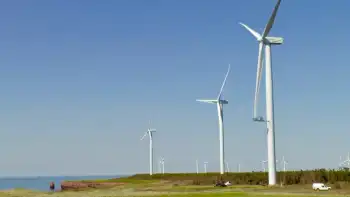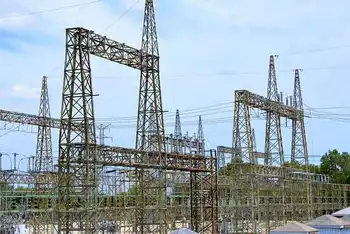Power-Plant Sale Completed: LS Power Group paid 1.6 billion to acquire nine facilities
LS Power Group paid $1.6 billion to acquire nine power plants owned by Duke, including Moss Landing's 1,020-megawatt, gas-fired, combined-cycle facility and its 1,509-megawatt steam facility, said LS Power spokesman Darpan Kapadia.
The sale is effective immediately, said Duke spokesman David Hicks.
"LS Power is now the owner and operator of the facilities," he said.
In addition to the physical plant, all agreements that Duke has entered into with other agencies involving Moss Landing's operation pass to LS Power, Hicks said.
One of those agreements was signed March 21 between Duke and the Moss Landing Harbor District which terminated Duke's original lease and entered into a new agreement granting Duke and desalination developers use of the power plant's outfall for 50 years.
In return, the utility company is to pay $50,000 per year for discharge of heated water into Monterey Bay and an additional $50,000 a year.
Moss Landing Power Plant will continue to operate with its 50- year-old once-through cooling system that uses seawater pumped from Moss Landing Harbor, but that may change in the future, said Duke officials.
Last week, the state Lands Commission and California Ocean Protection Council approved resolutions calling for the phase-out of once-through systems at 21 coastal power stations, saying drawing water from the ocean kills fish eggs, larvae, plankton and other marine life that get sucked into the systems.
The two agencies say larger fish, turtles, sea lions and other creatures are caught and killed on the intake filter screens.
The state Lands Commission regulates use of public land leased by the state to private users, and the Ocean Protection Council is an advisory body on environmental issues affecting state coastal waters. The Lands Commission would require power plant operators to change the cooling systems as their permits and state land leases expire.
Moss Landing uses a "once-through" cooling system that draws water from Elkhorn Slough and discharges the warmed water into the bay, a system that Hicks has said was determined by state regulators to be appropriate and the best option for Moss Landing.
California American Water has an agreement with Duke to develop a pilot desalination plant in Moss Landing, using the power plant's intake system for the water, Hicks said, which also passes to LS Power.
The purchase included three other power plants in California - Morro Bay, Chula Vista and Oakland - as well as two in Arizona and plants in Maine and Connecticut.
LS Power is a development, investment and asset management group of companies focused on the power industry, with offices in San Jose as well as New Jersey, New York, Missouri, Florida and Massachusetts.
Related News

Philippines Ranks Highest in Coal-Generated Power Dependency
PHILIPPINES - In a striking development, the Philippines has surpassed China and Indonesia to become the nation most dependent on coal-generated power in recent years. This shift highlights significant implications for the country's energy strategy, environmental policies, and its commitment to sustainable development amid global efforts to reduce carbon emissions.
Rising Dependency on Coal
The Philippines' increasing reliance on coal-generated power is driven by several factors, including rapid economic growth, rising electricity demand, and the perceived affordability and reliability of coal as an energy source. Coal has historically been a key component of the Philippines' energy mix, providing a stable…





